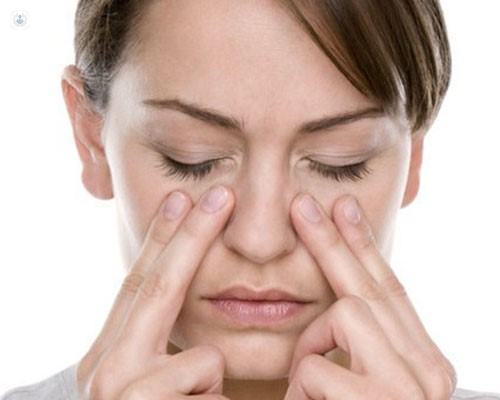Acute rhinosinusitis: what is it, and what are the symptoms?
Written by:Top Doctors recently spoke to highly esteemed London-based consultant ENT surgeon, Mr Pavol Surda, to find out what acute rhinosinusitis is, what the main associated symptoms are, and how the condition is treated most effectively.

What is acute rhinosinusitis?
Acute rhinosinusitis (ARS) is a term that can be used to describe any short-lasting condition that causes inflammation of the lining of the nose and sinuses. It is an infection that causes both the nose and sinuses to become swamped by cells that fight infection, which trigger inflammation as part of the effort to kill the agent causing infection. It is most often due to a viral infection, but occasionally can also be caused by bacteria.
What are the main symptoms?
There are many symptoms associated with acute rhinosinusitis. The main ones include the following:
- blocked nose or a feeling of congestion
- nasal discharge
- facial pain or pressure
- headache
- reduction/loss of smell
- sore throat
- cough
- fever
What causes acute rhinosinusitis?
Acute rhinosinusitis is very common, and, in fact, is the thirteenth most common reason for patients to need to see a doctor. Adults typically suffer from between two to five colds per year, while school children have about seven to 10 colds per year. Viral infections are much more common than bacterial infection and are thought to cause over 98 per cent of all cases of acute rhinosinusitis. However, cases that are more severe or long-lasting may indicate a bacterial infection.
How is it treated?
Viral infections will virtually always get better with time, rest, and sticking to healthy behaviours such as staying well hydrated. There are also some medications which are available over the counter that can help to relieve the symptoms while you are waiting to recover.
If a doctor feels that a patient's case of acute rhinosinusitis is likely being caused by bacteria, then it is likely that antibiotics will be the first line of treatment. Usually, this is a short course of antibiotics targeted at the most common bacterial causes – and is quite different to the use of antibiotics in the longer-lasting form of sinus disease, chronic rhinosinusitis.
Antibiotics have a modest effect when used in patients with bacterial rhinosinusitis, but are completely ineffective in viral infections. Their use can occasionally have side effects such as rash, nausea, and diarrhoea. As well as antibiotics, bacterial rhinosinusitis symptoms can be made more tolerable by simple medications such as paracetamol.
Make sure you book a consultation with Mr Pavol Surda today via his Top Doctors profile if you have noticed yourself experiencing some of the symptoms outlined in the above article.


